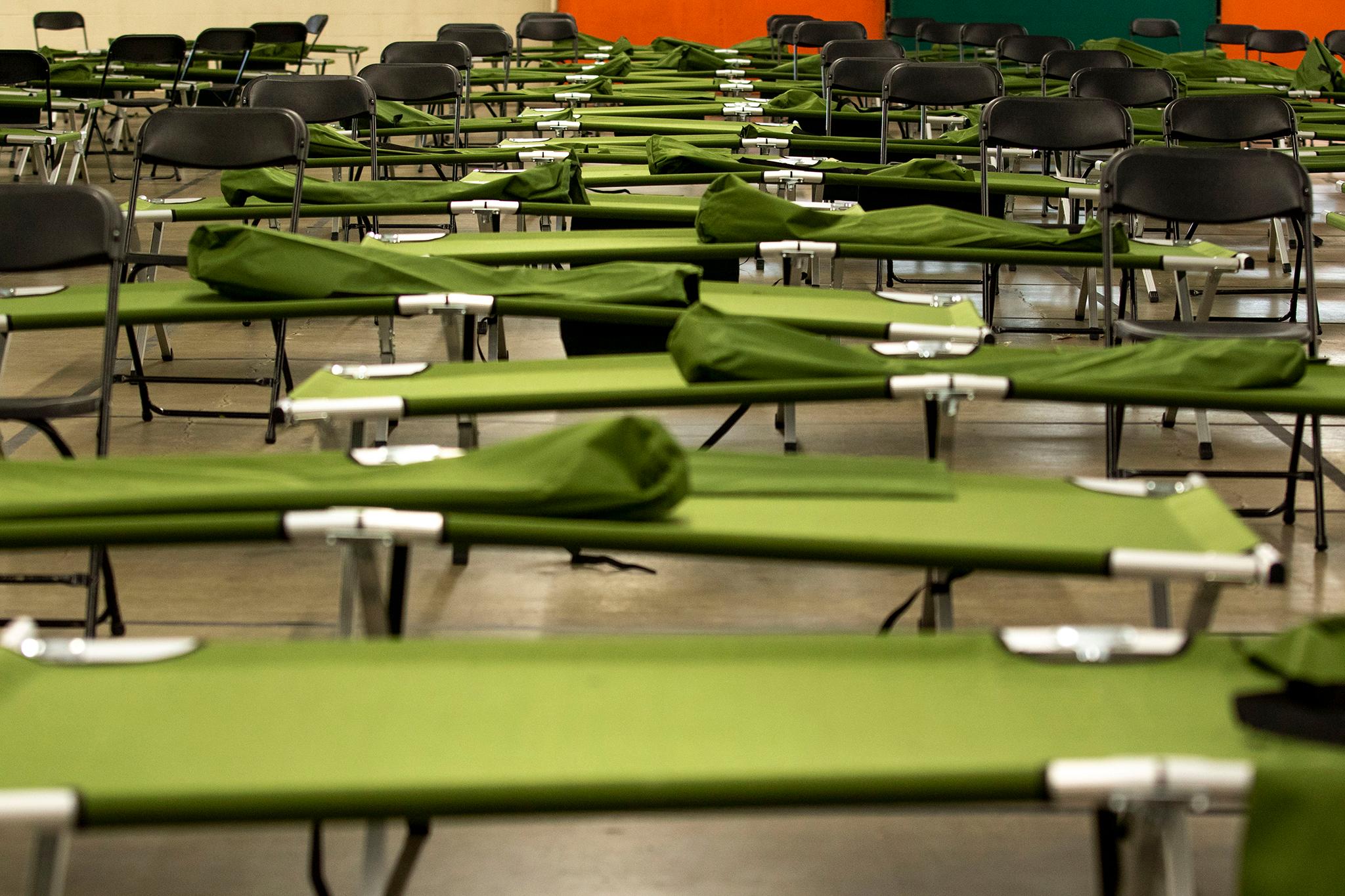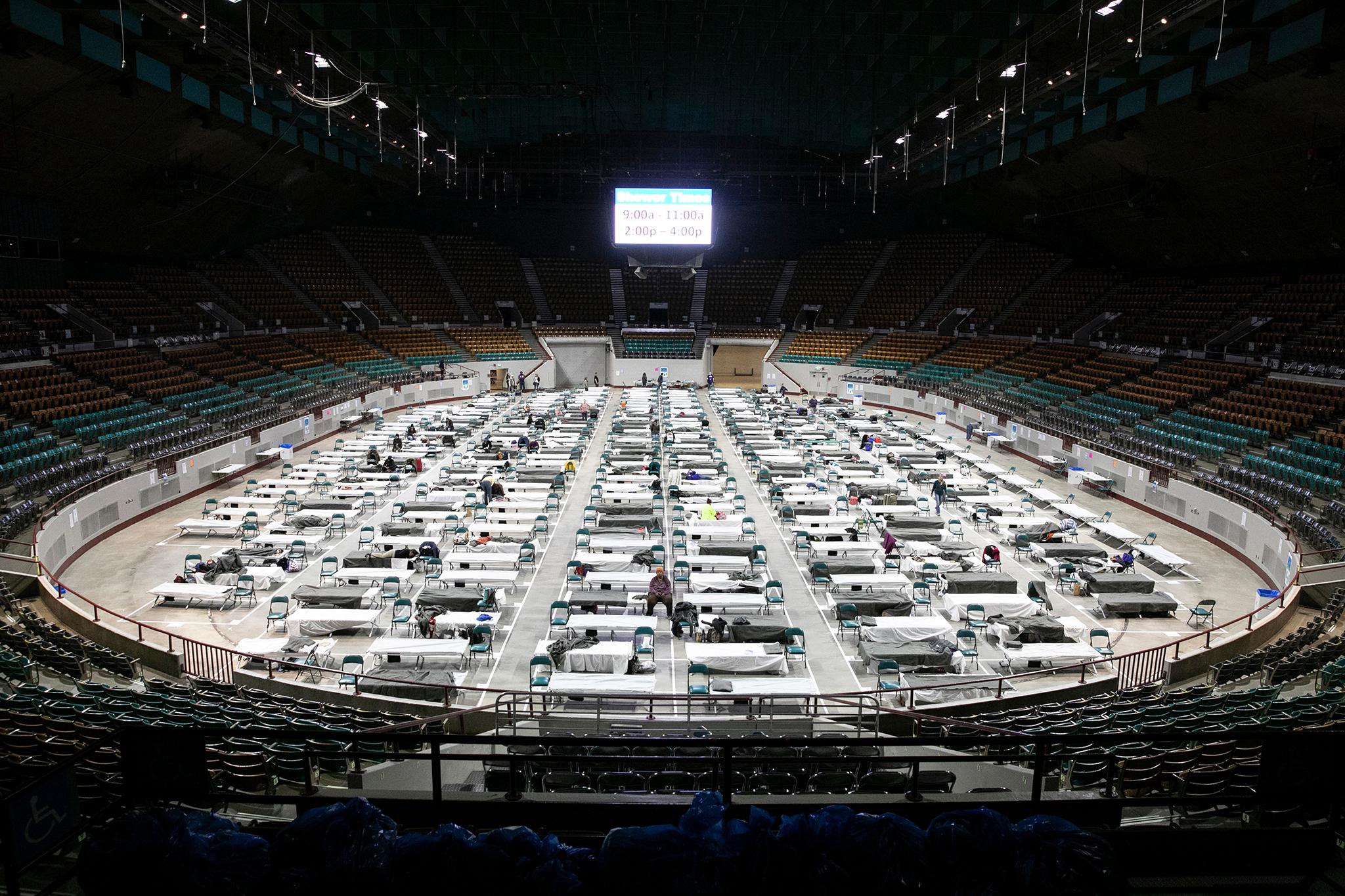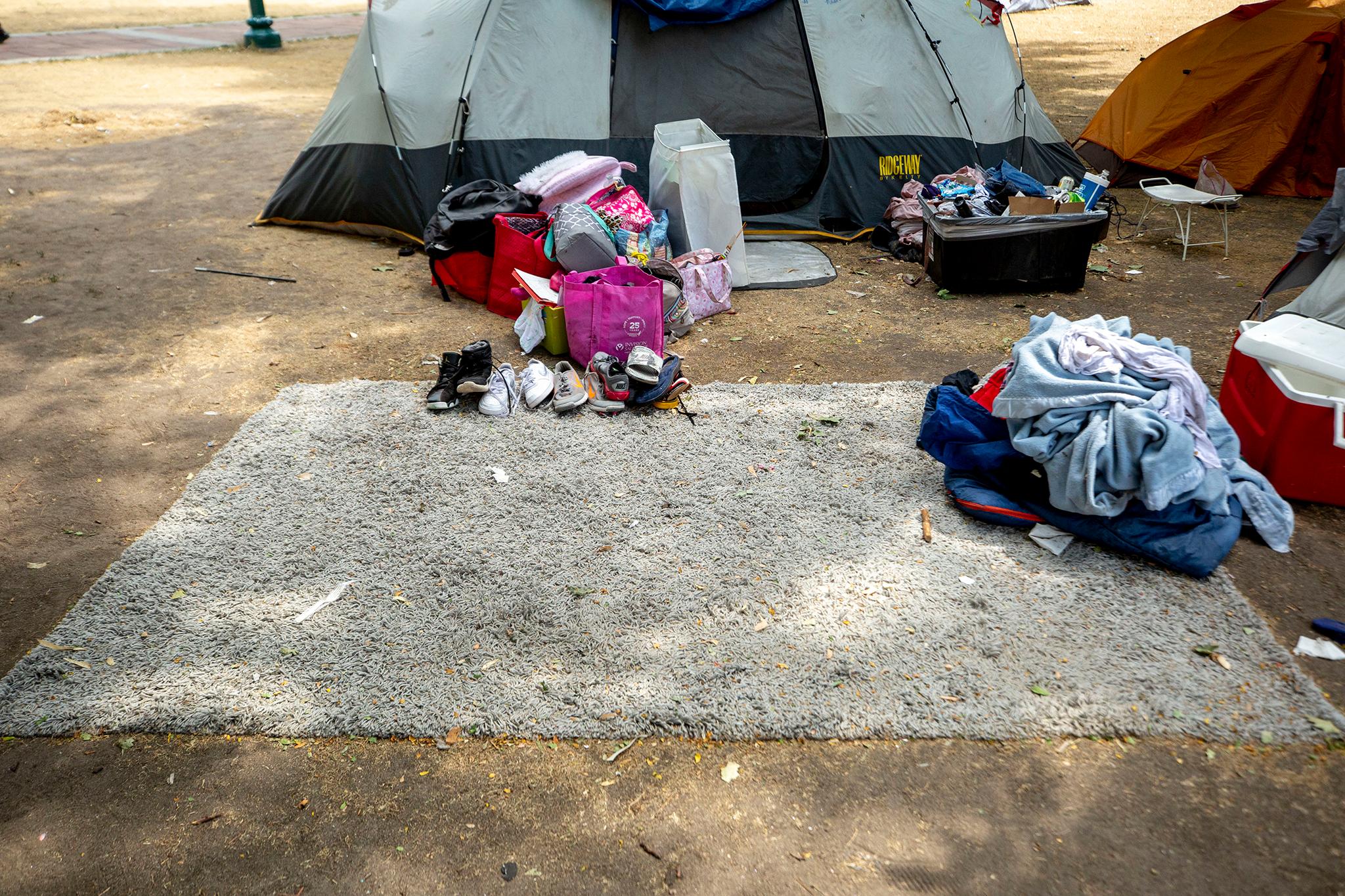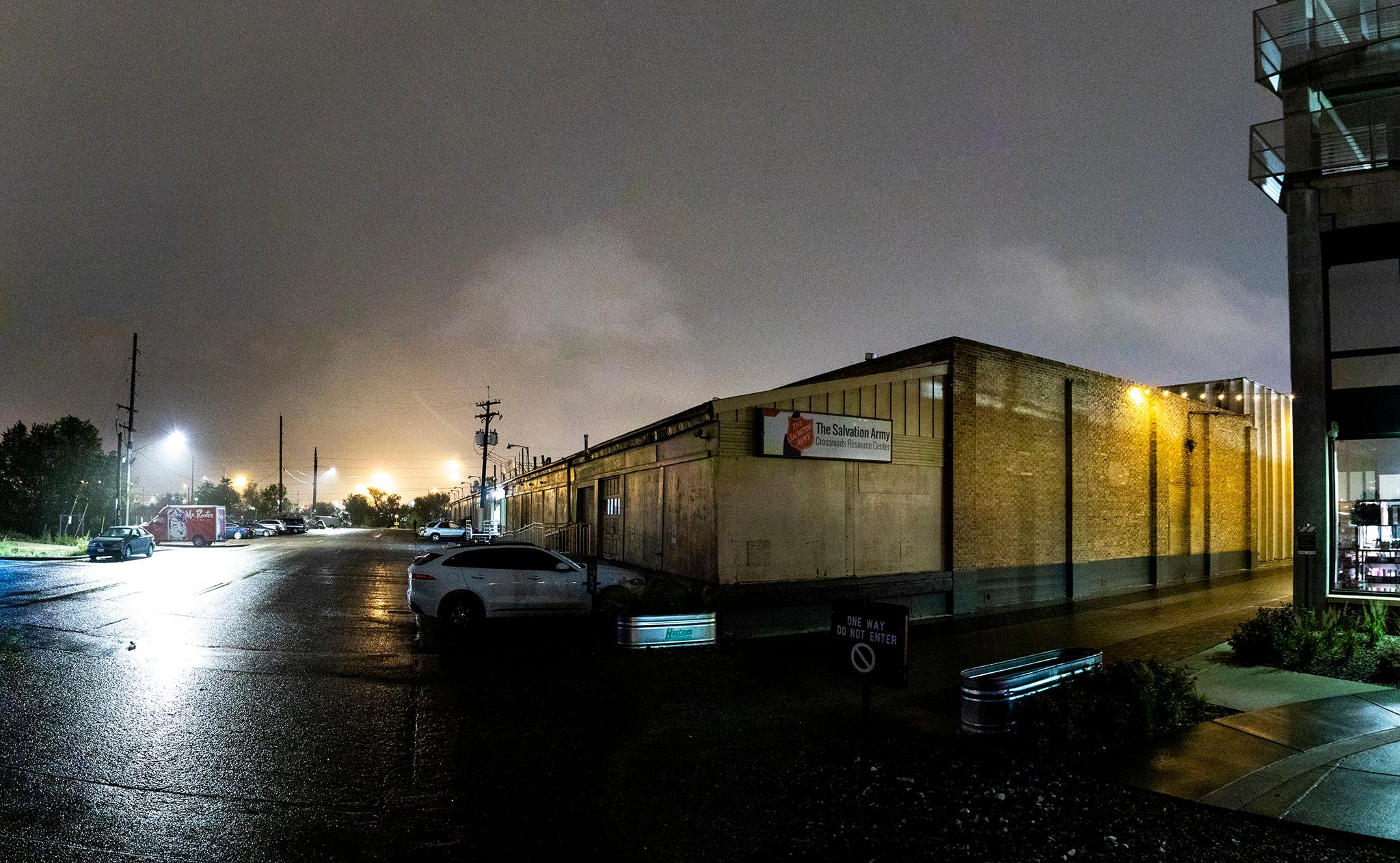Denver might need another shelter.
Kristen Baluyot, the Salvation Army's Denver metro social services director, said her organization has told city officials and other service providers that it is open to running a new shelter. The discussion is part of a broader conversation about whether homelessness, already apparently increasing amid the pandemic, is about to get much worse.
"That is definitely a concern, especially if we're seeing evictions as the moratorium ends," Baluyot said.
Gov. Jared Polis imposed a statewide moratorium on evictions in May because a coronavirus economic slowdown was leading to high levels of unemployment. As his moratorium ended last month, Polis extended the time people affected by COVID-19 have to catch up on their rent from 10 to 30 days, a grace period that will be ending soon.
Brad Meuli, president and CEO of the Denver Rescue Mission, thinks "we're going to see more people on the streets because of the economy. I'm very concerned."
Meuli's organization operated a men's shelter that the city set up in April at the National Western National Western Complex. That facility and one for women and transgender individuals at the nearby Coliseum were opened to ensure that people without homes could shelter in place from the coronavirus. Other shelters in town were shut down to allow providers to muster enough staff and resources for the Coliseum and National Western facilities, which operate 24 hours a day. Round-the-clock shelter was unusual in Denver before the pandemic.


Hundreds of men who had never before sought help from the city's network of homeless service providers showed up at the National Western, an the indication that homelessness may be increasing.
Another indication came last week when the advocacy group Denver Homeless Out Loud sent volunteers into 30 encampments in Five Points, Capitol Hill and other parts of Denver. The volunteers counted 664 tents and vehicles that were home to an estimated 1,328 people. That was significantly more than 996 that the Metro Denver Homeless Initiative found living outside across the city in January, which was already nearly double the unsheltered Metro Denver Homeless Initiative figure of 554 in 2019.
Denver Homeless Out Loud likely had an easier time finding people because police have been holding off on enforcing the city's camping ban because of the coronavirus. The Metro Denver Homeless Initiative was able to devote more people to scouring streets and river banks this January than it did in 2019.

Meanwhile, shelter in Denver is changing because the city's lease for the National Western expires in mid-August.
At the start of August, women and transgender individuals will leave the city-owned Coliseum shelter for hotel rooms, another shelter and, perhaps, permanent housing. Emptying the Coliseum shelter, which had rarely reached its 300-bed capacity when it housed women and transgender individuals, will free it to host 300 men from the National Western, which was designed for 600 men and often held more. Men from the National Western shelter for whom there's no room at the Coliseum will go to other shelters and hotel rooms.
Shelter numbers have been reduced because of the need to maintain social distance. Still, with some 800 hotels secured for people experiencing homelessness during the coronavirus, the shutdown of the National Western will leave the city with about the same number of beds for the needy that it has now, the Salvation Army's Baluyot said.
"But as we know, the numbers experiencing homelessness in Denver are increasing," she added.
Baluyot said talk of a new shelter, which she said would have to be in a building provided by the city, is in very early stages. She added the Salvation Army was also working to prevent, not just respond to, homelessness. The Salvation Army has used grants from the state and donors to provide rental assistance.
But "the money is going to go quickly," she said.
Service providers also are working with the city to determine how to distribute millions in federal COVID-19 relief funds to be used for shelter operations and to pay security deposits and rent to get people who have experienced homelessness into apartments.
Cathy Alderman is vice president of communications and public policy for the Colorado Coalition for the Homeless, which has helped people affected by the coronavirus get off the streets and into hotels in recent months. Early in the pandemic, Alderman was concerned that such people would end up back on the streets when the crisis was over and emergency funding depleted. Now, she's also worried about the newly homeless.
"The safety net is just not there right now," Alderman said.
She's hoping subsequent national rounds of emergency funding will include money to house people who will be evicted.
"If we can get some more federal funds into the stream we can use this as an opportunity to solve homelessness," Alderman said.
Meuli, of the Denver Rescue Mission, said that "everyone is trying to work together to come up with solutions, including safe outdoor spaces."
After long opposing the idea, Mayor Michael Hancock recently endorsed city-sanctioned camps known as safe outdoor spaces where people experiencing homelessness would be provided tents, meals and services such as trash collection, bathrooms and showers. The nonprofit that would run the first sanctioned camp, also known as a safe outdoor space, is looking for a site and hoping to set it up soon. Officials envision two or three camps, each home to 60 people.
"We're constantly looking for additional facilities and solutions," said Chris Conner, who is the Denver housing department's homelessness resolution director.
Conner said he has spoken with people who remember how housing security was undermined by the Great Recession of 2007-2008, and who wonder what the coronavirus downturn will bring and when they will start to see its impact.
"We're all bracing," Conner said.
Baluyot, of the Salvation Army, said the coronavirus emergency forced some necessary changes. Crowding at shelters such as her organization's Crossroads has been eased to stop the spread of disease.
"Social distancing promotes the dignity of human beings and is less traumatizing," Baluyot said.
She added that having shelters open 24 hours a day, which Denver had been moving toward before the pandemic, creates stability that makes it easier to connect people to jobs, health support and permanent housing. Crossroads and shelters operated by others switched to 24 hours after the National Western and Coliseum facilities began operating around the clock.
"Our end goal is that we will actually see an increase in people getting housing as a result of these changes," Baluyot said.












